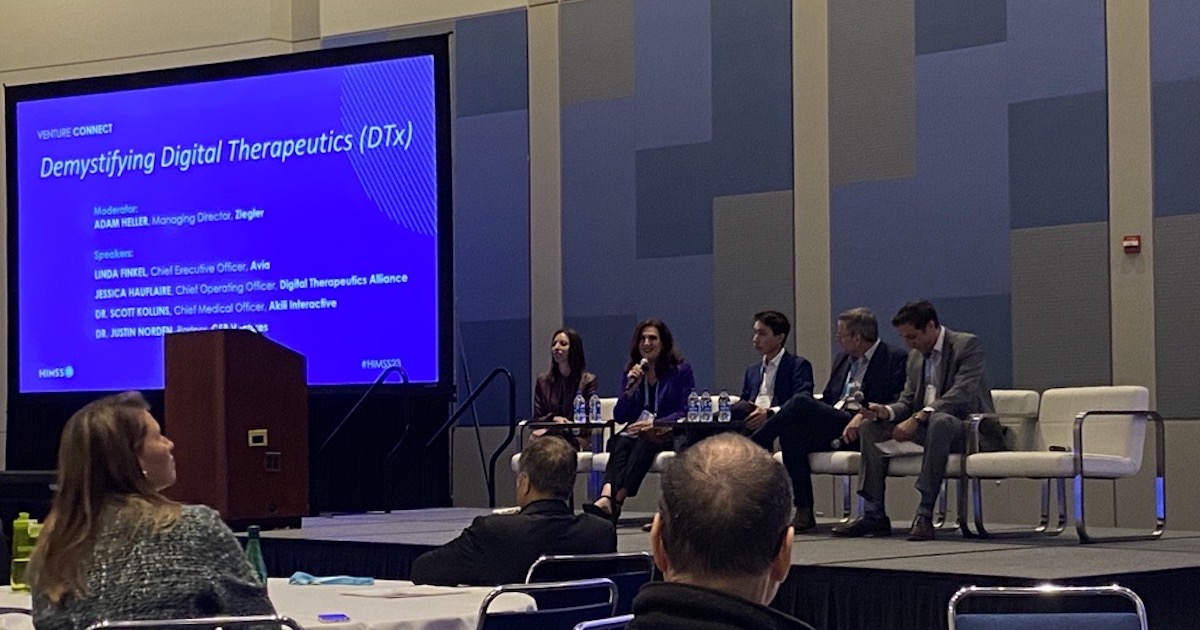CHICAGO — During the Venture Connect panel on demystifying digital therapeutics at the 2023 HIMSS Global Health Conference & Exhibition here on Tuesday, panelists provided insights into the state of investments in digital therapeutics, the barriers to adoption, challenging existing standards of care and how success in the sector requires patience and persistence.
“Very recently [investment] has started to change,” said Dr. Justin Norden, partner at GSR Ventures. “In venture capital, [we look at] what valuations look like, how startups are starting to function, what the public market and ultimate exits will look like. We’ve really started to see changes, especially in the digital therapeutics space.”
He pointed to Pear Therapeutics, one of the earliest digital therapeutics companies, which recently filed for bankruptcy. Digital health funding is also down overall, and companies need to rethink their strategies moving forward, Norden said.
“Digital therapeutics and every digital health company have to face a different reality, a different capital environment. [They] need to make what capital they have last longer so that they can hit those commercial milestones,” Norden said.
Establishing partnerships with pharma companies and health systems is another way digital therapeutics startups can encourage adoption.
“There is a great deal of receptivity to thoughtful partnerships from health systems in digital therapeutics. There’s interest. They’re looking for collaborators, and it would be that collaboration that would ultimately allow the company to be successful,” said Linda Finkel, chief executive officer at Avia.
She argued the evidence-based digital therapeutics market is destined to be successful but will require a great deal of patience from investors and entrepreneurs.
The panelists pointed out that there’s a large value proposition for providers to adopt digital therapeutics as it allows for convenience, cost-effectiveness and patient engagement.
“One point that is important to emphasize is the notion of cost-effectiveness, which is absolutely true,” Scott Kollins, chief medical officer at Akili Interactive, said. “We have to challenge the assumption that existing standards of care are cost-effective because they are not.”
Still, there are contrasts between where the digital therapeutics sector is and where it wants to be, the panelists said, especially when it comes to adoption and payment dynamics.
“We are very early in the reimbursement landscape,” Norden said. “What we’re starting to see across the payer landscape is things happen piece by piece.”
Finkel stressed the need to continue pushing toward reimbursement for the benefit of all patients no matter their social status.
“As a consortium of organizations committed to digital therapeutics, we [should] not take our foot off the pedal on pushing for reimbursement because one of the great shames would be that this somehow inadvertently contributes to health equity issues, and only those that can afford them get digital therapeutics,” Finkel said.
The panelists agreed that digital therapeutics could have a lasting effect on healthcare, though perseverance is needed.
“There’s no question in my mind that this is the future,” Norden said. “We’re going to have digital therapeutic interactions with almost everything that we do. The hard part is just how long is it going to take us to get there?”




